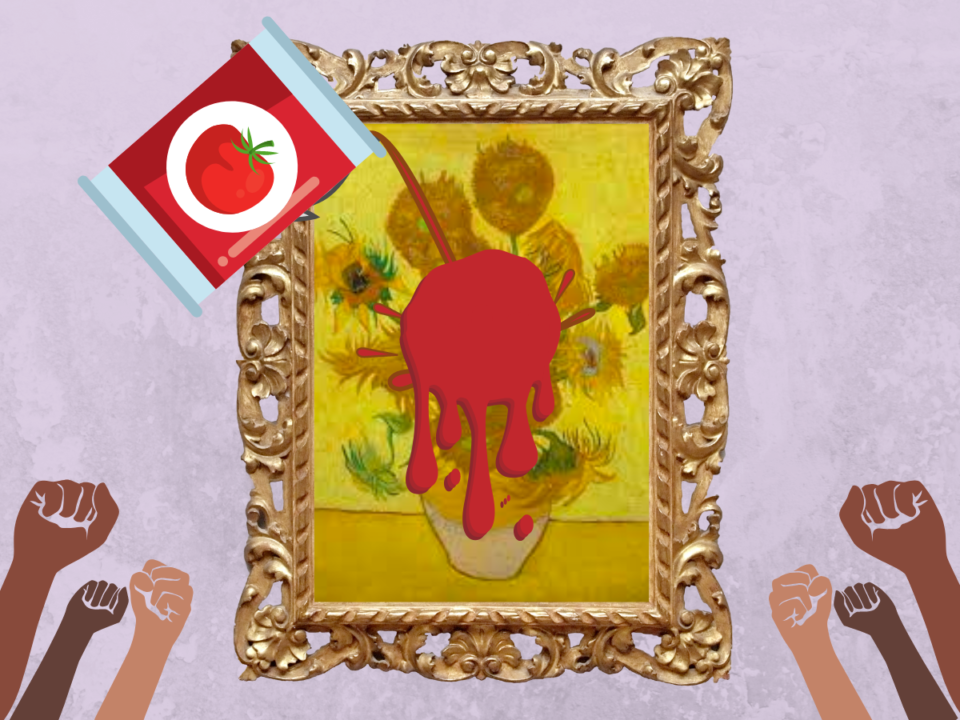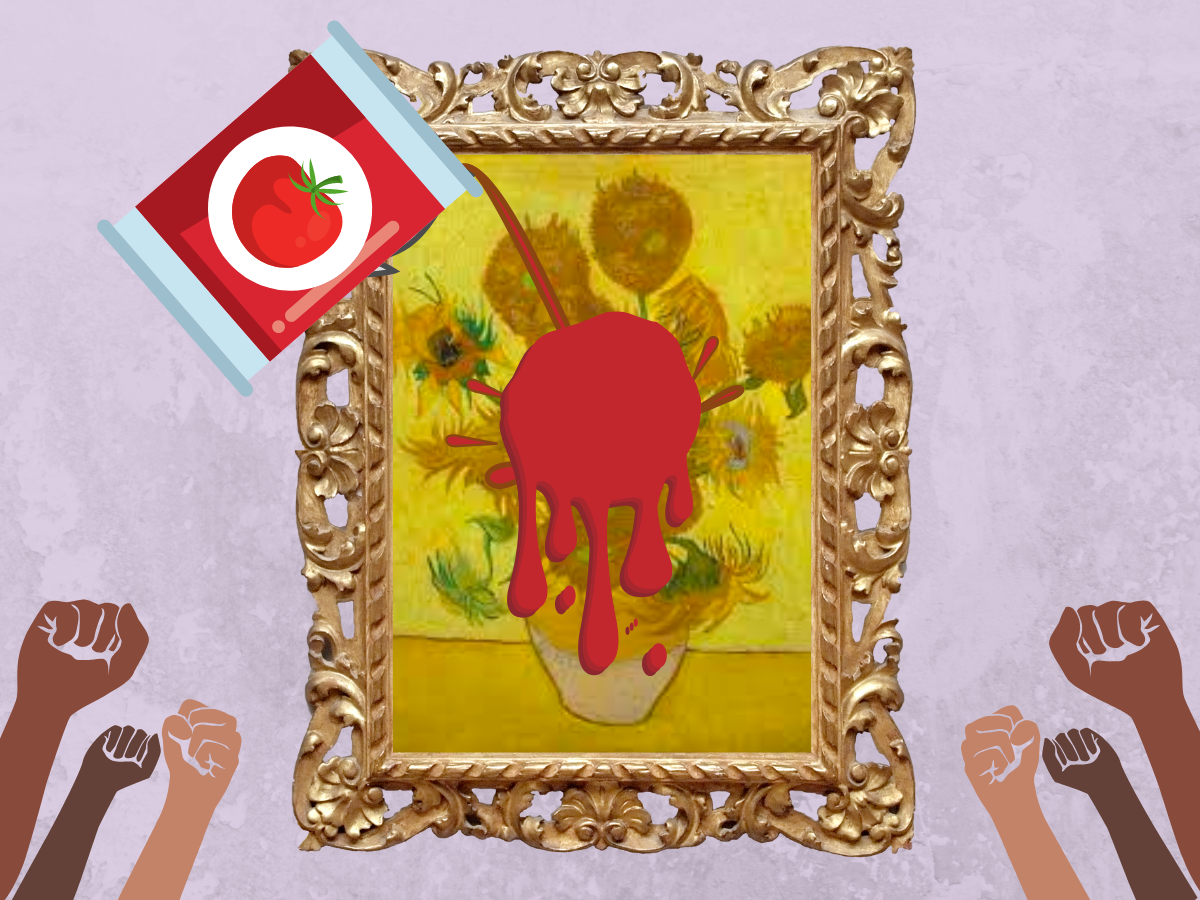
Famous artwork has been targeted for so long by climate change protesters as an attention-grabbing stunt. No doubt it works, but this, to me, is an upsetting protest that is unproductive.
On Friday, October 14, two Gen Z protesters of Just Stop Oil threw tomato soup on Vincent van Gogh’s “Sunflowers” at the National Gallery in London. They then proceeded to glue their hands to the wall that the painting hangs on.
Thankfully, the painting was unharmed due to the smart thinking of those who added thin glass in front of famous paintings like “Sunflowers” in preparation for incidents such as this one.
One of the activists said, “Is art worth more than life? More than food? More than justice? The cost-of-living crisis is driven by fossil fuels—everyday life has become unaffordable for millions of cold, hungry families—they can’t even afford to heat a tin of soup. Meanwhile, crops are failing and people are dying in supercharged monsoons, massive wildfires and endless droughts caused by climate breakdown. We can’t afford new oil and gas; it’s going to take everything. We will look back and mourn all we have lost unless we act immediately.”
I completely understand where they are coming from and the root of the issue they are trying to address; however, I am extremely disappointed with the actions of the protest. With the amount of wonderful and effective peaceful protests that have happened in the past, destroying art is unfortunate and heartbreaking.
People treat paintings like “Sunflowers” as incredibly priceless pieces of art that cannot be replaced, which is true, but then lose that sentiment when it comes to the earth and climate change.
One Twitter user tweeted: “I’m struggling to understand why destroying a painting of sunflowers by van Gogh, an impoverished man who was marginalized in his local community due to his mental illness, is the right target to make a statement about how awful the oil industry is.”
I'm struggling to understand why destroying a painting of sunflowers done by Van Gogh, an impoverished man who was marginalised in his local community due to his mental illness, is the right target to make a statement about how awful the oil industry is.
— Ellen Walker MA (RCA) (@EllenFWalker) October 14, 2022
To make an impactful statement about the oil industry, there should be a direct connection to a product, location, etc. of the oil industry and not a random painting in an art museum.
I respect what the protestors stand for and the statement they are making. It is rather silly that everyone is in an uproar about the potential damage of a 36-by-29-inch canvas, then proceeds to disregard our earth and the many warnings from scientists when it comes to saving our planet.
A piece of art can potentially be saved, but our planet cannot.
The issue I have with damaging art as a protest method is that art is a form of media that can be enjoyed by all and appreciated by all; you don’t need to be a reader, you don’t need to be a listener, you don’t need to be active. It’s an extremely accessible media that is also educational and historical.
I’m sure many people who enjoy art and history also believe in the effects of climate change and want to help combat that issue. An informational booth with pamphlets and stickers located right outside the gallery, I feel, would’ve been extremely helpful and would’ve attracted more people in a positive light who would be more inclined to learn about the issue.
Author Matt Taibbi posted this tweet on Twitter following the event:
Anyone saying this is a statement about “affluence and excess” is also being disingenuous. Throw soup at a CEO’s sports car, then. Society devotes resources to art because it’s absolutely worth protecting — in fact we don’t spend nearly enough on it.
— Matt Taibbi (@mtaibbi) October 17, 2022
Another Twitter user tweeted this at Just Stop Oil’s Twitter page:
“Stop wasting food and find productive ways to get people on board with your message. All you’re doing is alienating and pissing off people that are otherwise supportive and in agreement with your ultimate goal. This behavior is immature, pathetic and wildly out of touch.”
Stop wasting food and find productive ways to get people on board with your message. All you're doing is alienating and pissing off people that are otherwise supportive and in agreement with your ultimate goal. This behaviour is immature, pathetic and wildly out of touch.
— Heather Collier (she/her) (@heathervcollier) October 14, 2022
Visiting museums and art galleries is a fun hobby, passion or even career for some. There is great excitement to get up close to one of the world’s most famous paintings and see the detailed brushstrokes and incredible choice of color.
It is a calming and therapeutic experience that is a break from stress, technology and more. There is no need to take that away from people for a political or environmental protest that could be focused elsewhere.
I am a supporter of stopping climate change and working toward a healthy and effective environment for all generations to come, but for all generations to come as well, I hope there is art, history, books and more to continue to enjoy for centuries.
Macy Berendsen can be reached at macy.berendsen@stthomas.edu.



